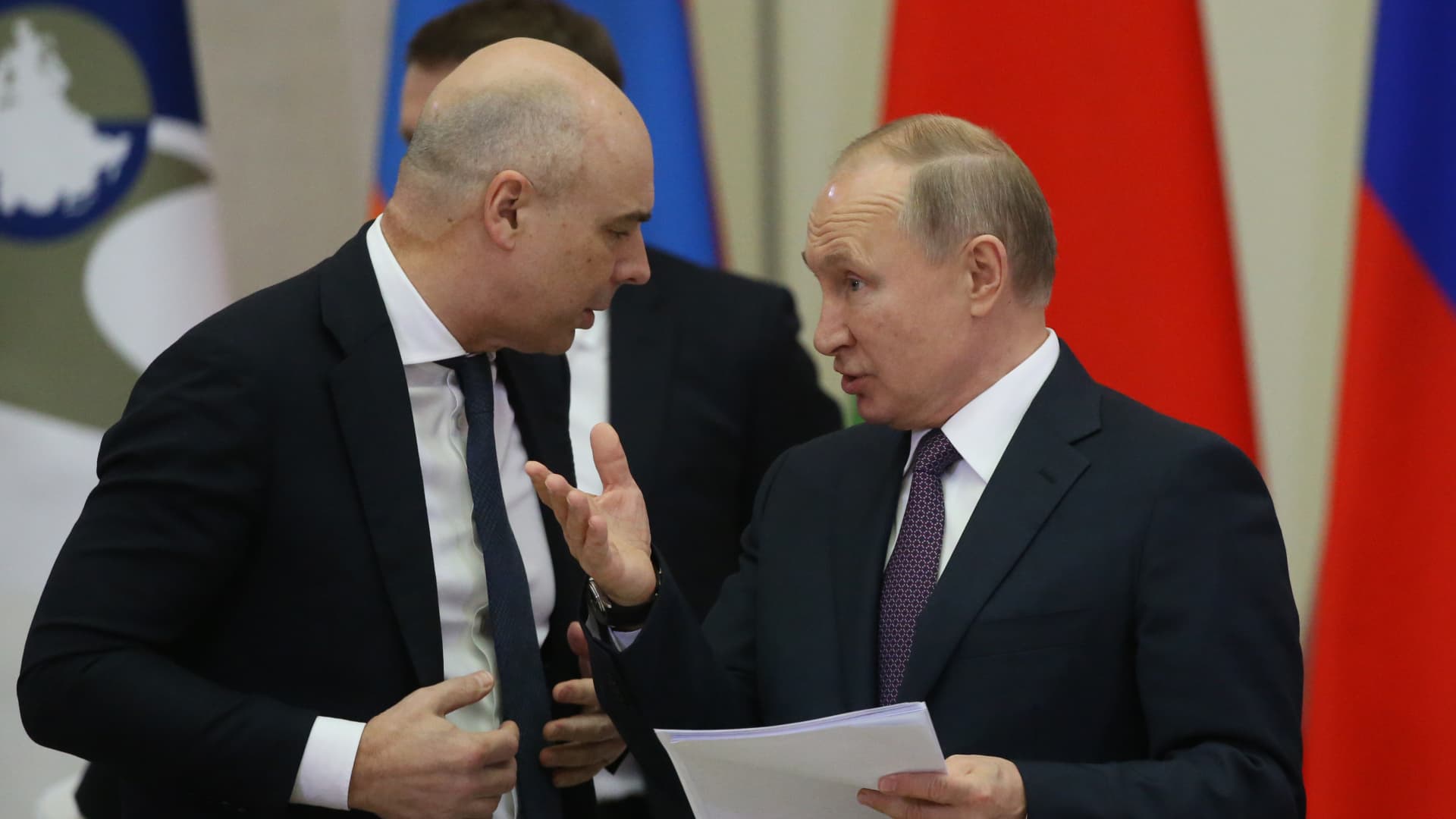
Russian Finance Minister Anton Siluanov (seen here with Russian President Vladimir Putin in 2019) reportedly told Russian newspaper Vedomosti that Moscow will continue to service external debts in rubles, but foreign Eurobond holders will need to open ruble and hard currency accounts with Russian banks in order to receive payments.
Mikhail Svetlov | Getty Images News | Getty Images
Russia could be entering its first major foreign debt default for over a century, after a grace period on two international bond payments lapsed on Sunday night.
Interest payments totaling $100 million were due on May 27 and subject to a grace period which expired on Sunday night. Several media outlets have reported that bondholders have not yet received the payments, after Russia’s attempts to pay in its ruble currency were blocked by international sanctions.
Sweeping sanctions imposed by Western powers in response to Russia’s invasion of Ukraine, along with countermeasures from Moscow, have effectively ostracized the country from the global financial system, but so far the Kremlin has managed to find ways to get payments to bondholders on multiple occasions.
Attempts to circumvent sanctions took a further blow in late May, however, when the U.S. Treasury Department allowed a key exemption to expire. The waiver had previously allowed Russia’s central bank to process payments to bondholders in dollars through U.S. and international banks, on a case-by-case basis.
Russian Finance Minister Anton Siluanov suggested earlier this month that Russia may have found another means of payment. Moscow wired the $100 million in rubles to its domestic settlement house, but the two bonds in question are not subject to a ruble clause that would allow payment in the domestic currency to be converted overseas.
Reuters reported early on Monday, citing two sources, that some Taiwanese holders of Russian eurobonds have not received the interest payments due on May 27, indicating that Russia may be entering its first foreign debt default since 1918, despite having ample cash and willingness to pay.
Siluanov reportedly told Russian state-owned news agency RIA Novosti that the blockage of payments does not constitute a genuine default, which usually come as the result of unwillingness or inability to pay, and called the situation a “farce.”
A further $2 billion in payments is due before the end of the year, though some of the bonds issued after 2014 are permitted to be paid in rubles or other alternative currencies, according to the contracts.
Although the signals are that payments have indeed been held up by international sanctions, it may take some time to confirm the default.






